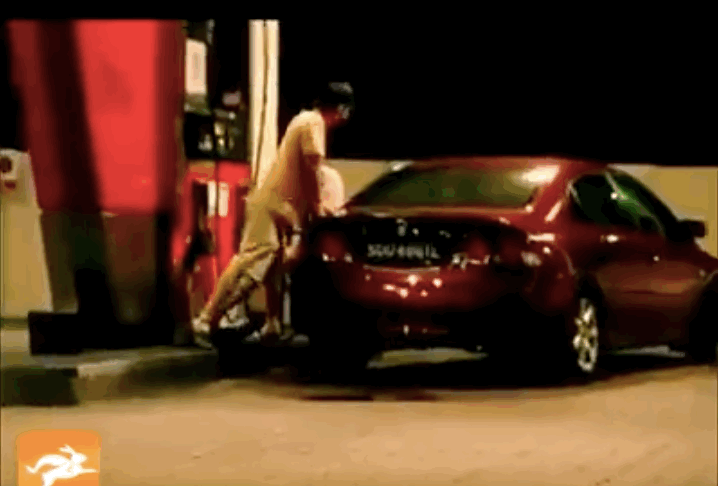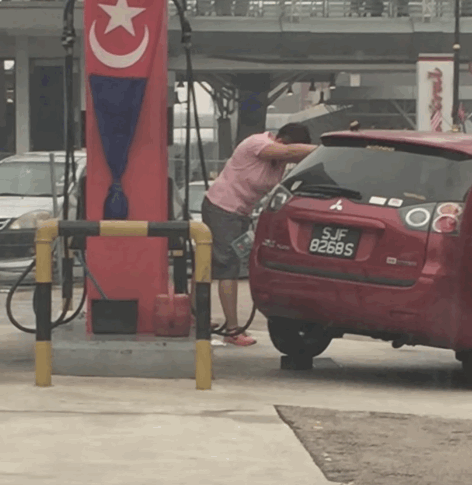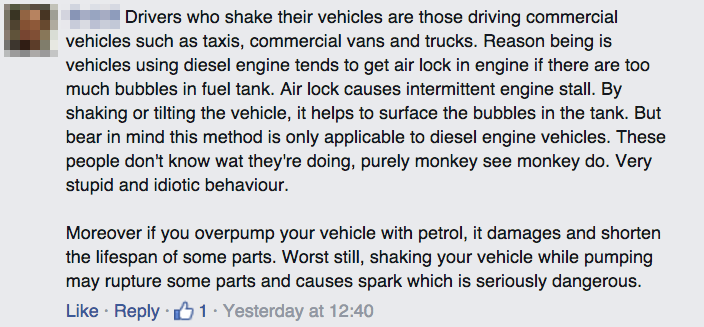[VIDEO] S'poreans Are Tilting & Shaking Their Cars To Get More Fuel At JB Petrol Stations
To be fair, fuel prices in Singapore are waaaay more expensive la...
So, we learnt something new from the Singaporeans today. If a viral video that's been widely circulated lately is to be believed, you can stuff more petrol in your car's fuel tank if you shake your car hard enough.
The video compilation shows several car owners with Singaporean number plates shaking and pushing against their cars while refuelling in Johor Bahru's petrol stations. Here's the kicker - they've been doing it for years!
According to a news piece from 2006, Singaporeans are putting themselves at risk to fill up their fuel tanks to 100% capacity. Some even tilted their cars sideways by jacking it up or tucking a brick under the rear wheel, presumably to maximise the flow of petrol into the fuel tanks.
For context, loads of our neighbours across the Causeway make frequent trips to Johor Bahru to refill their fuel tanks, as petrol prices in Singapore are at least 3 times higher compared to Malaysia
Fuel prices in Singapore according to individual distributors as of 14 January 2016.
Image via Petrol Watch SingaporeAt the time of writing, 20 January 2016, fuel prices in Malaysia and Singapore are as such:
1. RON95 is priced at RM1.85 per litre, while the Singaporean equivalent 95-Octane costs S$1.88 (RM5.72) to S$1.93 (RM5.84) per litre.
2. RON97 is priced at RM2.25 per litre, while 98-Octane, which is ranked one point above RON97, costs S$2.17 (RM6.60) to S$2.25 (RM6.84) per litre.
3. Diesel in Malaysia is priced at RM1.60 per litre, while it costs S$1.05 (RM3.19) to S$1.10 (RM3.35) per litre in Singapore.
Now the million-dollar question is, does tilting and shaking your car really allow you to pump more petrol? Apparently, yes it does, but not without great risk to you, your car and everyone around you.
According to Singaporean daily The New Paper, tilting your car sideways might enable you to pump in an extra litre of petrol.
However, motoring experts pointed out that fuel tanks are not meant to be filled completely, as the extra space is supposed to act as a safety feature when the fuel expands. If the tank is 100% full, inflammable vapour could seep out, posing a fire risk and releasing harmful vapour into the atmosphere. Excess petrol will also leak out when the car is level if the tank's cap is not properly secured. Additionally, over-filling can also ruin the engine.
All this to save a few dollars for that extra litre of petrol.
Some who commented on the video pointed out that shaking a vehicle to release bubbles and prevent an air lock in the engine should only apply to diesel-powered vehicles. Plus, excessively shaking a car could potentially damage the car's rear suspension and rupture some of its parts.




